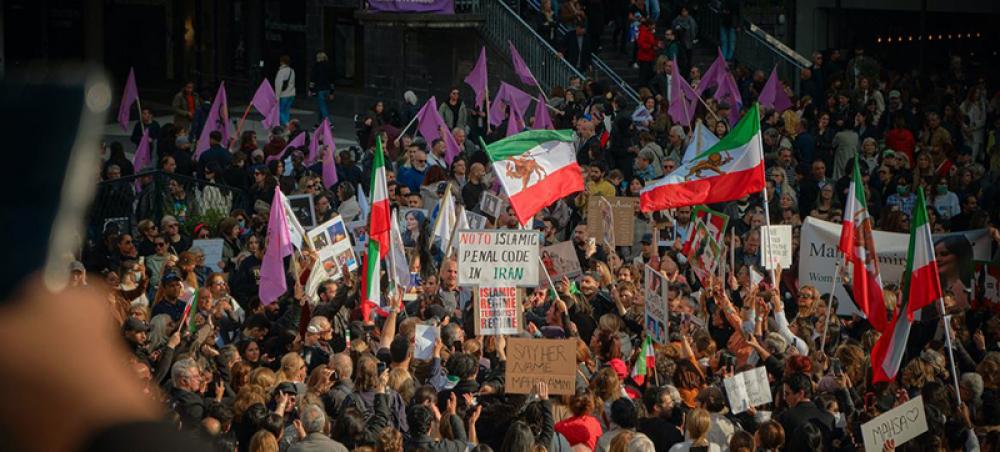Just Earth News | @justearthnews | 09 Dec 2022

Image: Unsplash/Artin Bakhan
New York: More than a dozen UN-appointed independent human rights experts on Thursday condemned the execution of a 23-year-old Iranian artist convicted for taking part in protests, and raised general alarm over any charges that are made which carry the death penalty.
Mohsen Shekari was hanged on Thursday morning after the Islamic Revolution Court in Tehran found him guilty of moharebeh or “waging war against God”.
This was the first execution of a protester convicted for taking part in the recent anti-government unrest sparked by the death in custody of Mahsa Amini for violating strict dress codes, according to news media.
Meanwhile, authorities have confirmed the death sentences of 12 others charged with moharebeh or the charge of efsad-e fel-arz, “corruption on earth”.
Abolition call
“Executions following unfair trials constitute an arbitrary deprivation of life,” the experts said in a joint statement, urging Iran to establish a moratorium on executions “with a view to abolishing the death penalty”.
They recalled that under international law, the death penalty can only be imposed and enforced for offences that meet the threshold of the most serious crimes, which involve intentional killing, and following a legal process that gives all possible safeguards to ensure a fair trial.
“We fear for the life of Iranian artists who have been indicted on charges carrying the death penalty,” the experts said.
Death and torture
They made specific reference to Kurdish rapper Saman Yasin, who has reportedly been sentenced to death after being convicted of moharebeh by the Islamic Court on 29 October.
And in court proceedings behind closed doors without his lawyer, rapper Toomaj Salehi was indicted for efsad-e fel-arz, which also carries the death penalty.
Mr. Yasin was arrested on 2 October for posting songs critical of the Government, and Mr. Salehi on 30 October for posting videos of himself encouraging followers to protest as well as songs disparaging Iranian authorities.
“We are also alarmed by information that the artists are currently being held in solitary confinement and about allegations of torture and ill-treatment against Mr. Toomaj Salehi”, the experts said.
Silencing dissenters
According to the latest information reaching the UN experts, Toomaj Salehi has a broken nose, several broken fingers and a severely damaged leg.
“These arrests and indictments appear solely to be related to the peaceful exercise of their legitimate right to freedom of artistic expression and creativity”, the statement continued.
Artists are currently being held in solitary confinement – UN experts
“They are only aimed at silencing dissenting voices in the country and constitute undue restrictions on the right of all persons in Iran to enjoy and have access to the arts and to take part in cultural and public life”.
Squashing artistic creativity
The protests, triggered by the death of Ms. Amini in September for allegedly violating Iran's strict hijab rules, have been met with a deadly crackdown by security forces.
At least 40 Iranian artists, writers, poets, actors, film makers and musicians have been arrested and jailed.
Iran’s policing of protests constitutes a violation of international human rights treaties to which it is a party, the experts said.
They reiterated their call for the immediate release of thousands of demonstrators indicted for their involvement in peaceful protests, maintaining that artistic creativity is necessary to develop vibrant cultures and functioning democratic societies.
The experts
The UN experts have expressed their concerns to the Iranian Government regarding these cases, urging them to cease all rights violations.
Click here for the names of the experts who signed the statement.
Special Rapporteurs and independent experts are appointed by the Geneva-based UN Human Rights Council to examine and report back on a specific human rights theme or a country situation. The positions are honorary and the experts are not paid for their work.